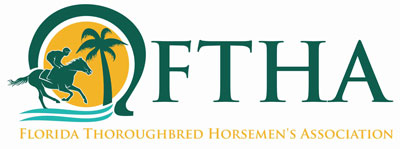954.457.3516 | info@floridahorsemen.org
 As the 2022 Session has officially ended, we want to first take the time to thank you for allowing us to represent the Florida Thoroughbred Horsemen’s Association (FTHA). We are honored to be able to continue to advocate for your legislative priorities and be a part of promoting your industry. We are pleased to submit to you the following report on this year’s gaming legislation activity.
As the 2022 Session has officially ended, we want to first take the time to thank you for allowing us to represent the Florida Thoroughbred Horsemen’s Association (FTHA). We are honored to be able to continue to advocate for your legislative priorities and be a part of promoting your industry. We are pleased to submit to you the following report on this year’s gaming legislation activity.
Status Update – 2021 Special Session on Gaming
For the last several years, the Legislature, Governor and Seminole Tribe have struggled to find compromise on a gaming deal to renew the state compact. However, this changed when Governor DeSantis announced a new agreement with the Seminole Tribe in April 2021, which then led the Legislature to hold a Special Session to ratify the gaming compact and pass associated legislation in May 2021.
In brief, the 30-year agreement newly allowed the Seminole Tribe to operate sports betting – bets would be placed through a mobile sports app, with servers located on tribal land. Opponents to the agreement felt that it violated the state’s constitutional requirement for any expansion of gaming to be approved via voter referendum because sports bets could be made off tribal land.
By adding sports betting, as well as roulette and craps at the Tribe’s casinos, the agreement was estimated to benefit the state by at least $2.5 billion over the next 5-years and an estimated $6 billion through 2030. Additional legislation passed during the Special Session included creating a gaming commission to regulate pari-mutuels and investigate illegal gambling, as well as the de-coupling of pari-mutuels, apart from thoroughbred racetracks.
The U.S. Interior Department approved the compact in August 2021, however in November 2021 a federal judge invalidated the compact. The judge argued that the compact authorized sports betting off tribe lands, thereby violating the Indian Gaming Regulatory Act. To date, the federal appeals court has not yet weighed in on reversing the decision.
At this time, the 2021 Gaming Compact, in its entirety, remains invalidated including the revenue share payments by the Tribe to the state. This includes the following provisions:
While the 2021 Gaming Compact has been invalidated, the Legislature passed additional legislation during the Special Session, separate of the Compact, which remains state law.
SB 8A – Gaming
SB 8A makes changes to Florida law for authorized gaming in the state, including live racing and games, slot machine gaming, and the operation of cardrooms.
SB 4A – Gaming Enforcement
SB 4A creates the Florida Gaming Control Commission within the Department of Legal Affairs, Office of the Attorney General. It additionally authorizes the Office of Statewide Prosecution in the Department of Legal Affairs to investigate and prosecute any violation of Florida Statutes referred by the Florida Gaming Control Commission that relates to the lottery, gaming compact, amusement facilities, pari-mutuel wagering, slot machines.
Gaming Activity – 2022 Session
With the compact in flux, the 2022 Legislative Session was relatively quiet in terms of gaming legislation. With 2022 being an election year, the Legislature convened for Session early. The 60-day Session began on January 11 and adjourned sine die, three days later than scheduled, on March 14. Difficulties in budget negotiations necessitated the delay, but the Legislature ultimately passed a record budget totaling over $112 billion for FY2022-23.
The 2022 Legislative Session saw limited policy bills passed, with only 285 bills passing both chambers, as the Legislature and Governor’s office focused on constitutionally required redistricting for both state and congressional seats. The Governor recently vetoed the Legislature’s approved congressional maps, and a Special Session on congressional redistricting is scheduled to begin on April 19.
In terms of gaming legislation, only one bill passed the Legislature:
SB 2510 – Florida Gaming Control Commission
The bill makes the following changes related to the commission and the Pari-Mutuel Wagering (PMW) Trust Fund:
SB 2510 will be effective July 1, 2022, pending the Governor’s signature.
The PMW Trust Fund is the only source of funding for the commission, and is comprised of pari-mutuel licensure fees, admission fees, breaks tax, and the tax on handle. Absent the passage of SB 2510, and in previous budget years, any revenues deposited into the PMW Trust Fund over $1.5M were required to be transferred to the General Revenue Fund. If SB 2510 is signed into law by the Governor, and pending the Governor’s line-item veto decisions on the budget, the Florida Gaming Control Commission will receive record funding for FY2022-23 of over $9.7M.



